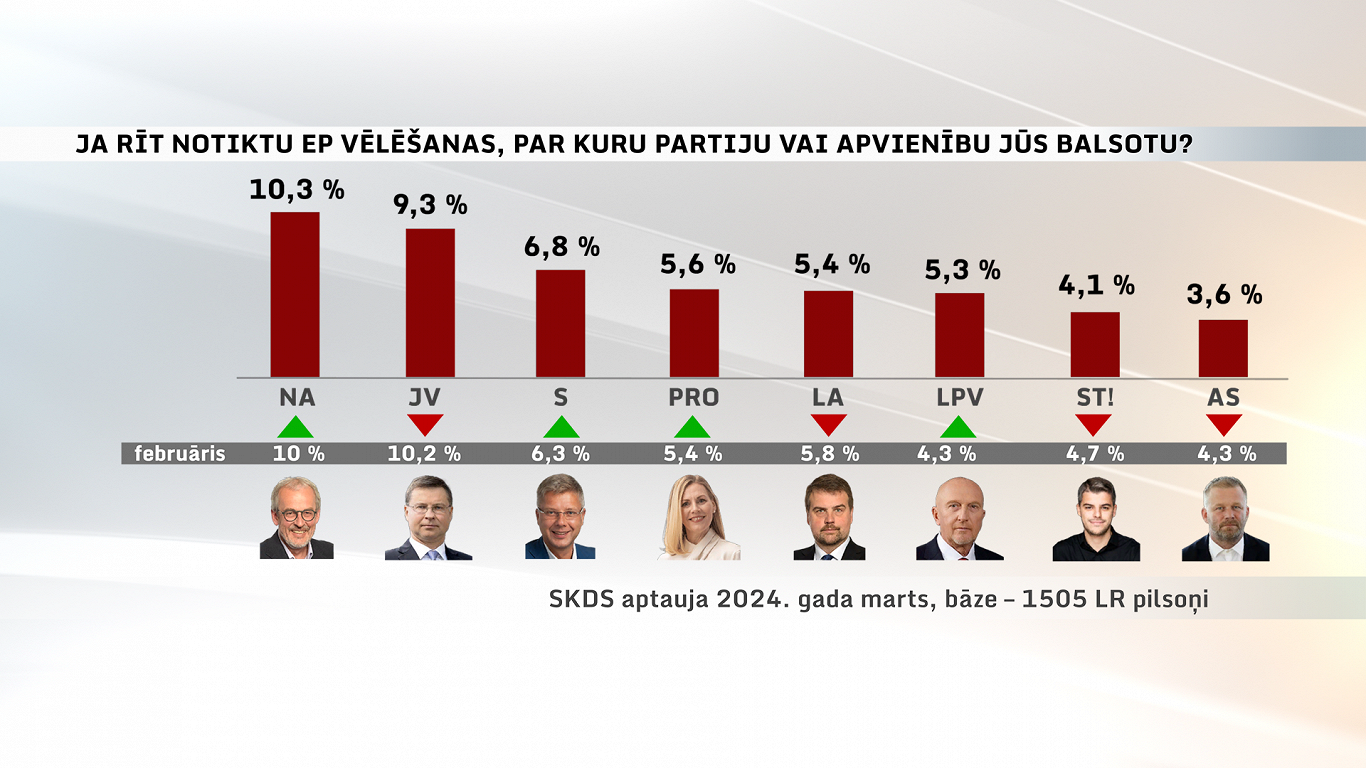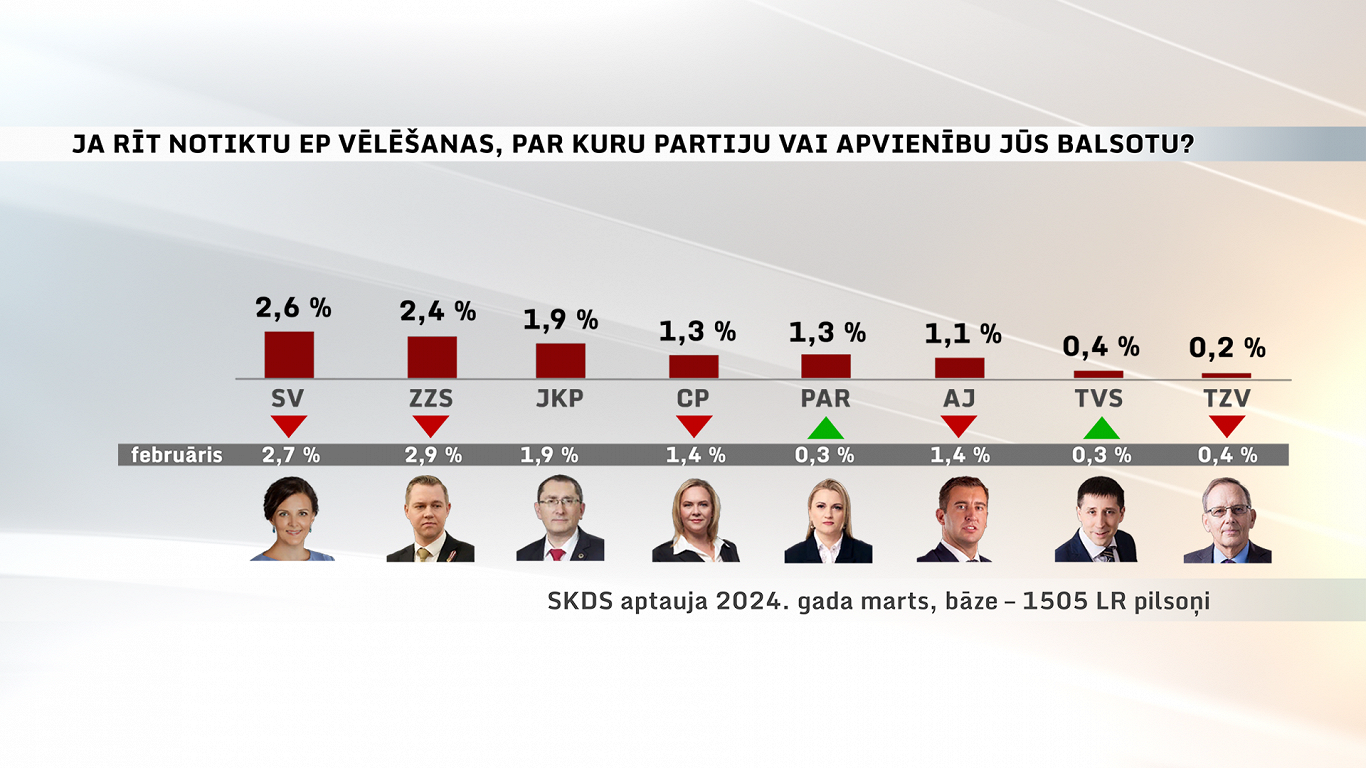If the elections were held in March, 10.3% of voters would vote for the National Alliance – 0.3% more than a month earlier. The rise is enough to take it past New Unity at the top of the table. Possibly the right-of-center political grouping has actually been helped by the departure from its ranks of one of its most right-wing and divisive figures, allowing more moderate conservatives to feel more comfortable about lending support to NA.
Meanwhile centrist New Unity, the party of Prime Minister Evika Siliņa, lost 0.9% of support during the month and slid into second place on 9.3% support.

In third place is Harmony (S), whose rating increased by 0.5%, reaching 6.8% – enough to kindle hopes that it will avoid the total election shut-out it suffered last year. It characterizes itself as a social democrat party but is usually seen as more of a Russian ethnic minority party.
The left/liberal Progressives (P) party holds fourth place with a 0.2% increase compared to the previous month and reached 5.6%, while business-oriented Latvia's Development (LA) scored 5.4%, a decrease of 0.4% compared to February.
Support for the populist Latvija in First Place (LPV) party increased by a substantial 1% during the month. 5.3% of respondents say they will vote for this political force.
On the other hand, support was on the wane for one of the breakthrough parties of last year's elections, For Stability!, which saw its support fall from 4.7% in February to 4.1% in March. Another political force that did well last year is also experiencing difficulties in retaining voters' affections – the United List slumped from 4.3% support in February to 3.6% in March.
None of the other eight parties contesting the European Parliament election were able to muster even 3% support with rank last place occupied by the new party 'T.Z.V.' formed by Aleksandrs Kiršteins – the very same politician who departed the National Alliance which is top of the table.

However, as always with Latvian political opinion polls, a huge slice of the electorate is accounted for by voters who either don't know which way they would vote (21.4%) or say they wouldn't bother voting at all (17%).
Given that this is a European election and not a domestic election, this final figure is likely to be a massive under-estimate. Turnout at European elections has historically been low. In 2019 turnout was 33.5% – and even that was a record high. In 2014 turnout was 30.2%.
The poll was conducted for Latvian Television by the SKDS pollster and involved 1,505 Latvian citizens.



























